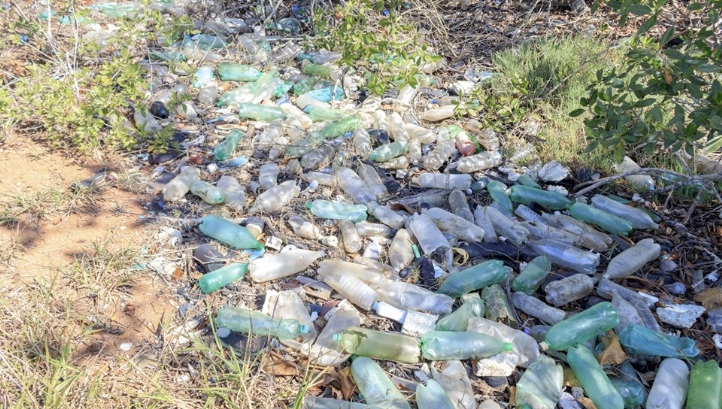Danone, Veolia, Nestlé and Tetra Pak have jointly launched a global initiative aimed at standardising and accelerating corporate action on plastics, in a bid to help businesses align plastic reductions with economic and social sustainability.

The initiative is undertaking 12 initial pilots of potential credit-issuing projects across Asia, Africa and Latin America. Pictured: A mangrove near Rio de Janeiro suffering from plastic pollution
Called the 3R Initiative and operated through a partnership with non-profits Verra and BVRio – which set international environmental standards and assist with the development of green markets respectively – the scheme will support consumer goods firms, retailers and packaging producers.
Under the scheme, such companies will be given access to a digital tool which allows them to trade plastics credits issued by recycling and recovery providers worldwide. These credits can then be used to prove compliance and to “offset” corporate plastic use, with the money raised through this system set to fund projects tackling plastic leakage “hotspots” and social inequalities in developing nations.
Projects earmarked to be funded by the 3R Crediting Mechanism include a scheme helping Brazil’s waste pickers to generate additional income, and another in South East Asia which will help to build new recycling infrastructure. In total, the initiative is undertaking 12 initial pilots of potential credit-issuing projects across Asia, Africa and Latin America.
The 3R initiative will also give participants access to a new standard against which their efforts to tackle plastic waste can be independently assessed. Called the 3R Corporate Standard, the aim of the framework is to help businesses “credibly” quantify and compare the impact of their actions through third-party assessment.
Businesses will be supported by NGOs Conservation International and South Pole throughout the 3R Initiative.
“It’s exciting to be part of creating a much-needed scheme to increase plastic recovery and boost recycling rates globally,” Tetra Pak’s global vice president for sustainability Mario Abreu said.
“This innovative 3R mechanism – Reduce, Recover, Recycle – is the brain child of experts coming together, rolling up their sleeves and taking on the challenge of improving collection.”
Strong foundations
The founding companies of the 3R Initiative have all implemented their own schemes to tackle plastics waste in recent years. Tetra Pak’s overarching ambition is to ensure that none of its cartons are sent to landfill and the firm has set a 2020 goal of recycling the equivalent of 40% of its annual packaging output by 2020, up from 26% in 2016.
Veolia has partnered with Tetra Pak as it strives to deliver on this aim and has also launched similar partnerships with the likes of Unilever. It has additionally pledged to treble the number of coffee cups it collects and recycles during 2019, compared to 2018’s figure of 40 million.
As for Nestle, the food and beverage giant has set a UK Plastics Pact pledge to ensure 100% of its plastic packaging is recyclable, reusable or compostable by 2025. The company recently unveiled its first plastic-free packaging designs for Smarties and Nesquik and has invested heavily in emerging technology which restores recycled plastic streams to ‘near-virgin’ quality to market.
Danone has also joined WRAP’s UK Plastics Pact and is working towards the same ambition for 2025. In a bid to help others follow suit, it has set an additional commitment to initiate or support collection and recycling initiatives in each of its largest 20 markets by the same deadline. representing around 90% of sales.
Collaborating for change
Between eight and 12 million tonnes of plastics are believed to be seeping into oceans and waterways every year – and that’s not to mention the plastic waste which is littered or otherwise mismanaged, leading to pollution on land.
This environmental and social crisis also has financial implications for businesses, with between $80bn and $120bn being lost from the global economy every year due to a linear system for plastic packaging.
In response to the issue, businesses are increasingly expanding their plastics action beyond their own operation by collaborating with competitors, policymakers and NGOs. The launch of the 3R Initiative builds on the progress made by the Plastic Leak Project , the Alliance to End Plastic Waste, WWF’s ReSource: Plastic and the Ellen MacArthur Foundation’s New Plastics Economy commitment.
Sarah George
